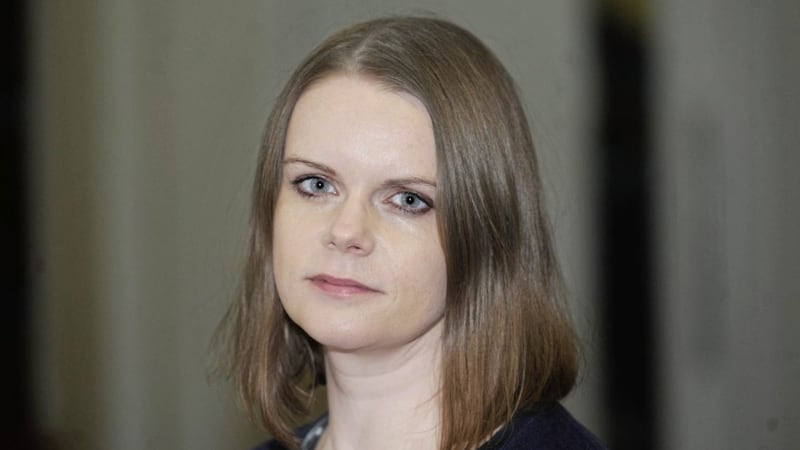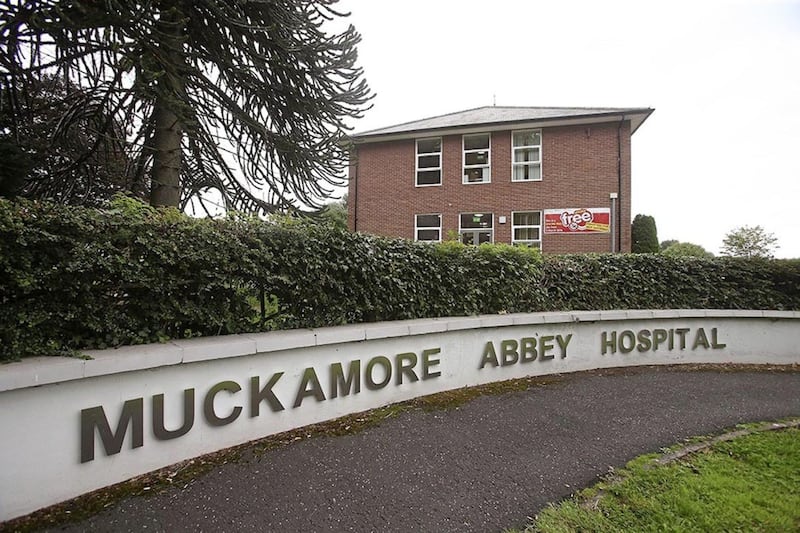As talks between the DUP and the Tories inevitably roll on and direct rule comes ever closer, at least we can thank the largest unionist party for focusing on the things that really matter - how they can eke out more power at Westminster.
Journalists in Britain seemed surprised when discussions aimed at forming a pact between the DUP and Tories weren’t over in a matter of days.
But our parties’ love of talks about talks, followed by entirely conflicting briefings about how those talks are progressing, comes as nothing new to anyone with even a vague interest in the north’s politics.
The DUP seemed irritated that prime minister Theresa May hadn’t given them her full attention. The party could not be ”taken for granted", a source told the BBC while also casting aspersions on Mrs May’s negotiating skills.
If she couldn't agree a deal with her ‘good friends’ in the DUP, the source suggested, "what does that mean for bigger negotiations she is involved in?"
What indeed? It's almost as if the beginning of Brexit negotiations which will decide the fate of the border and the size of the UK’s divorce bill from the European Union are a more pressing concern.
It doesn't say much for the DUP's negotiating skills that it hasn't managed to agree a deal either, even though Mrs May is reliant on the unionists to prop up her minority government.
Meanwhile the party has dismissed claims that it hasn’t been properly focused on restoring power-sharing.
"The DUP are able to multi-task," MLA Simon Hamilton claimed last week while looking like a man who’d been asked to unicycle while rubbing his stomach and patting his head at the same time.
But at least the party has allegedly secured one concession from Mrs May. On the day of the state opening of parliament, it crowed that the military covenant, already in place in Britain, will be extended to the north.
Of all the matters that really concern voters from North Antrim to Fermanagh and South Tyrone, extending the military covenant is well down the list, behind social inequality, flags, the collapsing health service, potholes, overgrown verges and how often their bins will be emptied.
However voters may become concerned when they realise what the military covenant actually entails.
Published in 2011, it aims "to redress the disadvantages that the armed forces community may face in comparison to other citizens, and to recognise sacrifices made”.
It also "recognises that the whole nation has a moral obligation to members of the armed forces and their families".
Uncontroversial statements in Britain perhaps, but quite a large number of people in the north would beg to differ.
Take the simple matter of housing. As part of the covenant, a package by the Department for Communities and Local Government included the assurance that “veterans with urgent housing needs were always given priority for social housing”.
Since an applicant’s links to an area are often taken into consideration in social housing cases, the package also ensured “councils did not disqualify service personnel who had recently left the services and did not meet the local connection test”.
The unfair distribution of social housing was one of the sparks that lit the fight for civil rights in the north, and yet this agreement, written in an entirely British context, seems to ignore our own history.
Then there’s healthcare. The covenant says that veterans “should receive priority treatment where it relates to a condition which results from their service in the Armed Forces, subject to clinical need”.
The north spends almost twice as much on anti-depressants as England and study after study has shown the Troubles has had a huge impact on our population’s mental health. Yet the covenant appears to suggest that veterans, some of whom will suffer from post-traumatic stress disorder as a result of their job, should get priority over civilians who may be affected by the same condition.
The DUP has long backed the extension of the covenant to the north but nationalist politicians have previously opposed it. Now an issue that appeared to have been dealt with several years ago has arisen again simply because the DUP wants to boast it has got at least one concession from Theresa May.
Of course the practicalities of actually extending the covenant are far from clear. How will Westminster overrule the assembly on a devolved issue? How will equality provisions in the Good Friday Agreement be amended to accommodate the covenant?
With both sets of talks continuing, it’s as if the DUP has put its eggs firmly in the Westminster basket. Perhaps it just doesn’t want a functioning assembly asking difficult questions.








